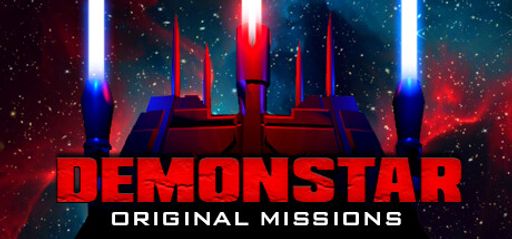DemonStar – Original Missions returns with a vengeance. I booted it up expecting pixel soup and prehistoric controls. Instead, I found a sleek, bullet-hell space shooter that honors its 1997 roots while blasting into the modern era. Scott Host, the game’s single-handed developer and publisher, earned a “Shareware Game of the Year” nod in 1999. Now he’s back, delivering new modes, refined gameplay, and even a two-player coop option. The result? A remaster that respects the past and still packs a punch.
Overall Impressions
DemonStar greets you with the familiar thrill of dodging neon death rays. It feels like dusting off a classic vinyl and discovering it sounds fresher than most modern playlists. The core shooting is tight and responsive. New modes—like Score Attack and Endurance—inject replay value. However, I found the campaign’s pace at times too relentless. It rarely lets you catch your breath. Compared to modern bullet-hell titles like Jamestown+ or Ikaruga, DemonStar leans more on sheer intensity than narrative flair. That focus works, but it risks fatigue in long sessions.
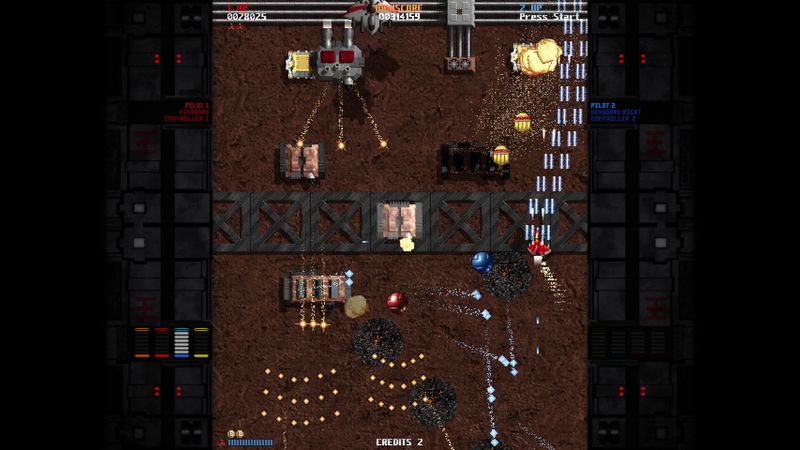
Gameplay Mechanics
The remaster keeps what worked: speed, screen-filling projectiles, and ship upgrades. Host tweaked weapon spreads and enemy patterns for more satisfying bursts of chaos. You still swap between lasers, spread shots, and homing rockets. Each feels distinct under your thumb. I tried Score Attack and nearly lost my lunch during the boss rush. One player review called it “the best bullet hell space shooter ever,” and I can’t disagree with the adrenaline high. The new two-player coop deserves applause. Teaming up with my virtual kid felt effortless. We carved through fleets in perfect sync—proof this remaster nailed local multiplayer. A minor gripe: menu navigation sometimes lags behind the action, making loadout tweaks clunky. Still, it’s easy to overlook that flaw when you’re hauling in high scores.
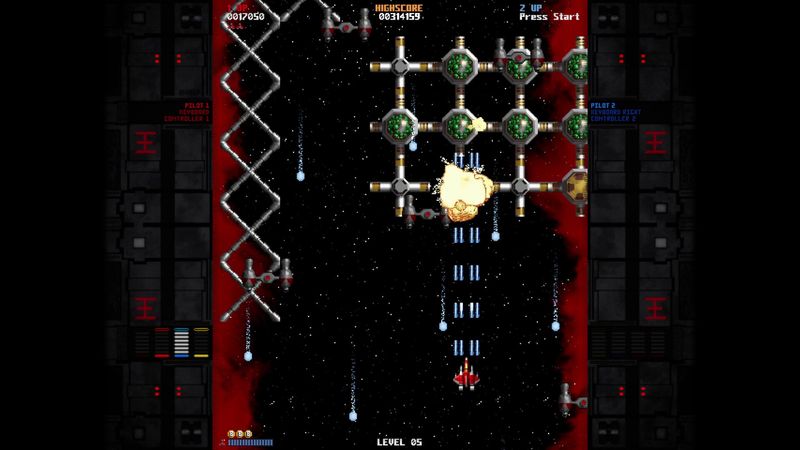
Story and Characters
Truth be told, DemonStar never aimed for Shakespeare. Its plot remains minimal: an alien armada threatens Earth, and you pilot the last hope. No dramatic cutscenes or voiced protagonists. Instead, the game focuses on pure shooting bliss. This minimalist approach works for the genre. It keeps the pace frantic and the stakes clear. You won’t shed tears over lost crewmates, but you will cheer when a well-timed power-up saves you. The lack of characters feels more like a design choice than a missed opportunity. In a market flooded with over-scripted narratives, I appreciate the straightforward warzone backdrop.
Visuals and Graphics
Visually, DemonStar embraces neon and vector art. Host overhauled textures and lighting without losing that retro flair. Enemy ships glow with vibrant hues, and explosions bloom in satisfying bursts. Backgrounds scroll smoothly, revealing distant galaxies and ominous alien structures. This remaster feels like a care package rather than a full makeover. It honors the 1997 style while adding polish. In contrast to some remasters that sanitize their source, DemonStar retains a gritty edge. Occasionally, particle effects overwhelm weaker rigs, causing brief frame dips. Yet, the spectacle rarely stutters long enough to spoil the fun.
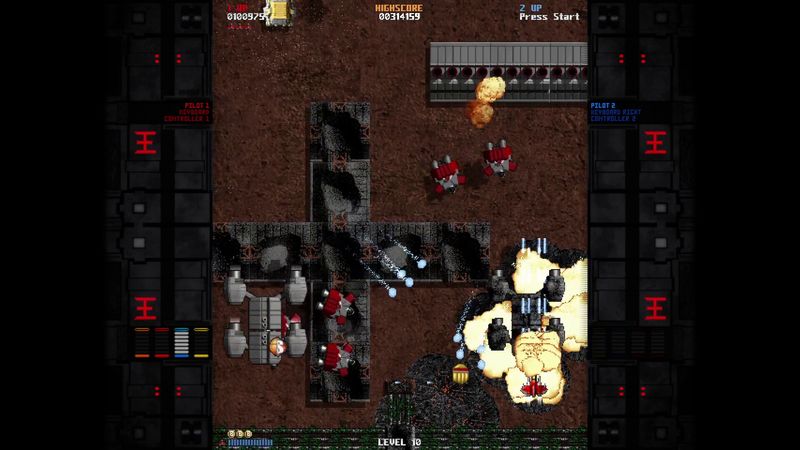
Sound and Music
The soundtrack fuses pulsing electronic beats with arcade-style riffs. It drives every stage forward and amps up boss encounters. Sound effects crack with authority—lasers hum, shields thrum, and explosions reverberate. There’s no dialogue, so audio bears heavy weight. DemonStar nails that weight. The music adapts to each mode too. Endurance’s looping theme almost hypnotized me into an extra run. I heard no voice acting here, but I didn’t miss it. This game sells itself on sonic satisfaction, not dramatic performances.
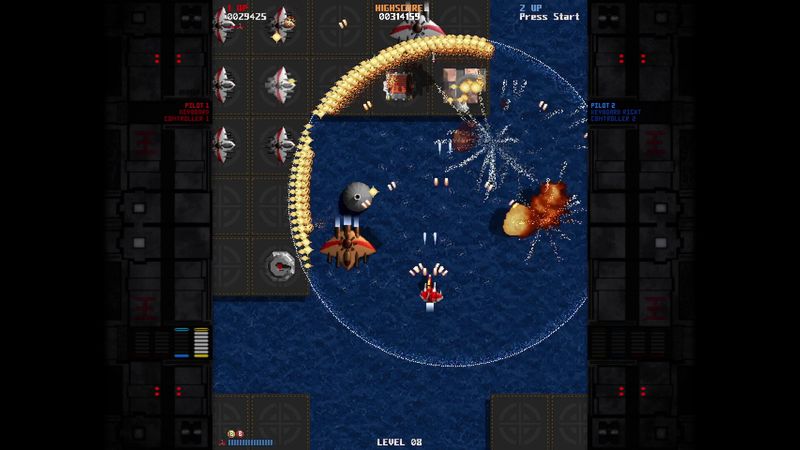
Difficulty and Replayability
If you crave a challenge, DemonStar delivers. I died more times than I can count during Stage 4’s gauntlet. One reviewer warned it felt harder than the original. They were right. Host leaned into tougher boss patterns and tighter hitboxes. This isn’t a walk in the park, and it rewards memorization. Score Attack pushed me to refine strategies and chase combos. Adding two-player mode doubled the replay value. I found myself returning night after night, trying new loadouts and beating personal bests. The lack of an online leaderboard feels like a missed chance to foster competition. Still, local score tallies and unlockable ship skins offer plenty of incentive.
Trivia and Behind-the-Scenes
Scott Host coded DemonStar solo. He released the original shareware in 1997, then watched it earn Computer Gaming World’s “Shareware Game of the Year” in 1999. After decades devoted to indie titles and utilities, Host revisited his magnum opus. He used modern engines to rebuild core systems while preserving legacy code for key mechanics. He also added community-requested features like adjustable difficulty and two-player coop. Host’s devotion shows in every pixel and audio cue.
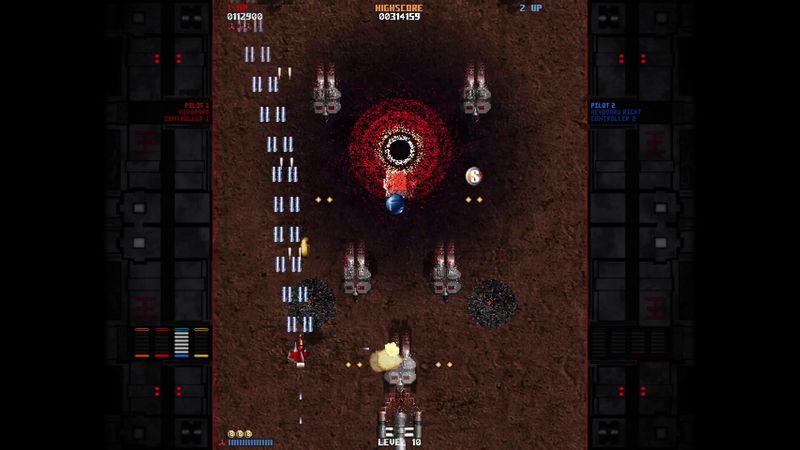
Final Verdict
DemonStar – Original Missions captures the heart of ’90s shareware brilliance and upgrades it for today’s bullet-hell fans. It nails addictive shooting, offers robust replay options, and scorches your finger with its coop mode. While the story stays on the light side and online features remain scant, its core gameplay more than compensates. Whether you’re a nostalgic veteran or someone only now stepping into neon chaos, DemonStar serves a thrilling ride.
Score: 4.5 out of 5 stars
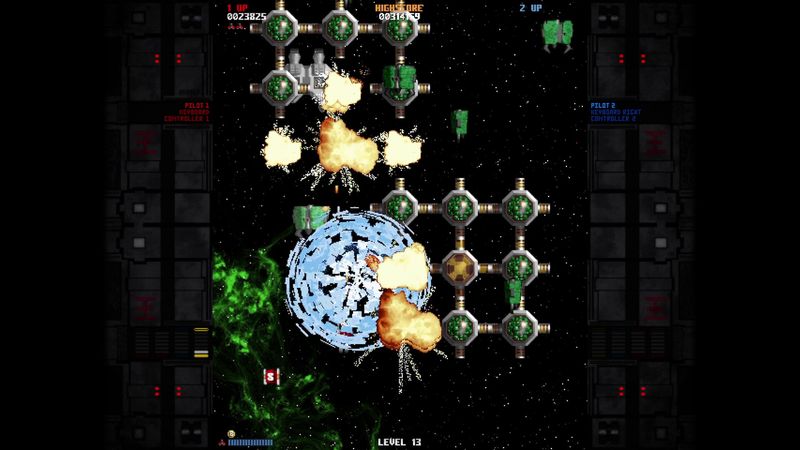
It stumbles only in flimsy menus and the absence of online leaderboards. Otherwise, it shines as one of the best remasters in its genre. DemonStar dares you to dodge, blast, and repeat—then begs for more. And who am I to refuse?
Add DemonStar – Original Missions to your Steam game collection!

